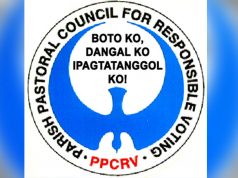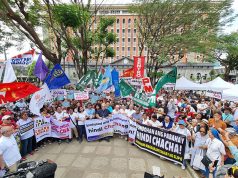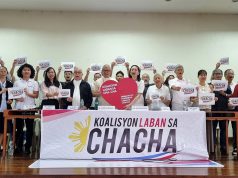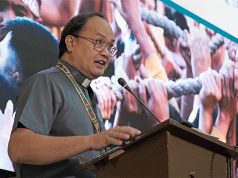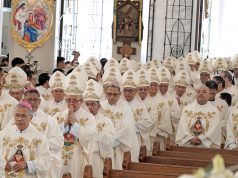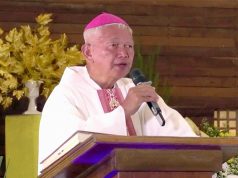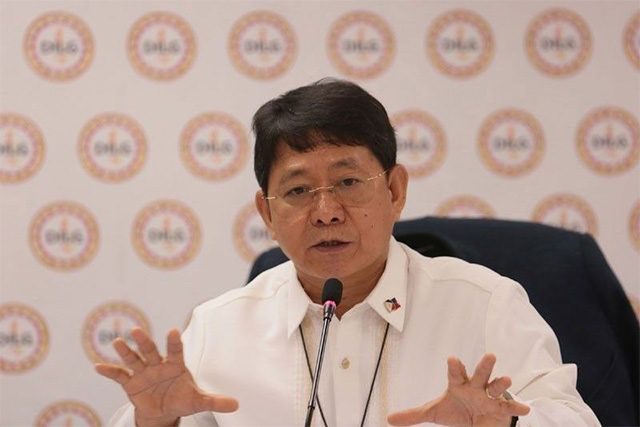
While the rest of the country is coping with the novel coronavirus pandemic and were placed under community quarantine protocols, reports surfaced early this week that the national government is still pushing through with the charter change via an online signature campaign.
Based on the reports, the Department of Interior and Local Government directed its regional offices and supporters to continue gathering signatures via an online platform to back the proposed amendments to the 1987 Constitution.
The agency reportedly moved online to reach the target two million signatories before the scheduled deadline in July.
However, the DILG and the Presidential Communications Operations Office immediately denied their involvement in this initiative.
Interior Secretary Eduardo Año even tagged such reports as “fake news.”
Instead, DILG Spokesman Jonathan Malaya said the signature campaign is only being handled by the agency’s civil society organizations such as the Constitutional Reform Movement (CORE).
He clarified that the CORE campaign is a private effort and not related to the government’s goal to change into federalism.
Presidential spokesman Harry Roque also stressed in a virtual press briefing Tuesday that DILG’s current priority is the government’s response efforts to the health crisis.
“Well, this has been explained by Usec. Malaya. It’s not really a priority, they are continuing because the mechanism is there. But they are really focused now on COVID-19,” Roque said.
What CORE said
These statements were immediately countered by an official of CORE, former Masbate governor Vicente Revil, who admitted to ANC on May 20 that the group was helping the DILG in collecting signatures for charter change, thus countering Malaya’s statement.
Revil revealed that even before the pandemic struck the country, CORE already managed to acquire some 281,000 signatures.
He cited the present health and economic conditions of the country as the reason for continuing this initiative.
“Yes, we are continuing this because we have seen now, especially with the present situation the effects on the health and economy of our country, it is just right that we have to correct these structural flaws that’s happening with our governance,” Revil said.
“We still have to work and ensure that in the long run this pandemic will be properly addressed in solving the holistic approach, not only in the health sector but also in the economic part,” he added.
The documents acquired by Inquirer.net showed that the official government website constitutionalreform.gov.ph is the platform being used for the online petition.
A memo dated May 11 signed by Malaya reads:
“In this regard, we would like to encourage all the regions and civil society organizations to utilize our CORE website for the online signature campaign. The use of this accessible and reliable online platform will eventually help in promoting the campaign as well as gather signatures with more people at home.”
The signatory’s name, the region of residence, email address, photo and civil society organization they belong to are also required to complete the form for the petition.
The Philippine Daily Inquirer, meanwhile, stood by its charter change report following allegations of spreading false information and government officials’ denying their hand in the online initiative.
When did the CORE program start?
President Rodrigo Duterte had been pushing for a federal form of government since he won the presidency in 2016.
However, in June 2019, Duterte decided to seek constitutional changes instead of a federal charter.
After Aquilino Pimentel Jr. passed away last October, the DILG announced that the Task Force for Constitutional Reforms will still continue to pursue federalism in honor of the late politician.
“Senator Pimentel pursued decentralization and federalism because he believed that this would raise the economies of the poor regions as they get more say and more funds in pursuing programs to speed up their development,” Malaya said.
“Senator Pimentel wanted the Administration to build a bridge for the next generation of Filipinos to pursue a better life in the future. We will honor this through constitutional reforms that he had advocated all his life,” he added.
In January of this year, the DILG launched the CORE movement to be its partner at the forefront of seeking charter change in the country.




